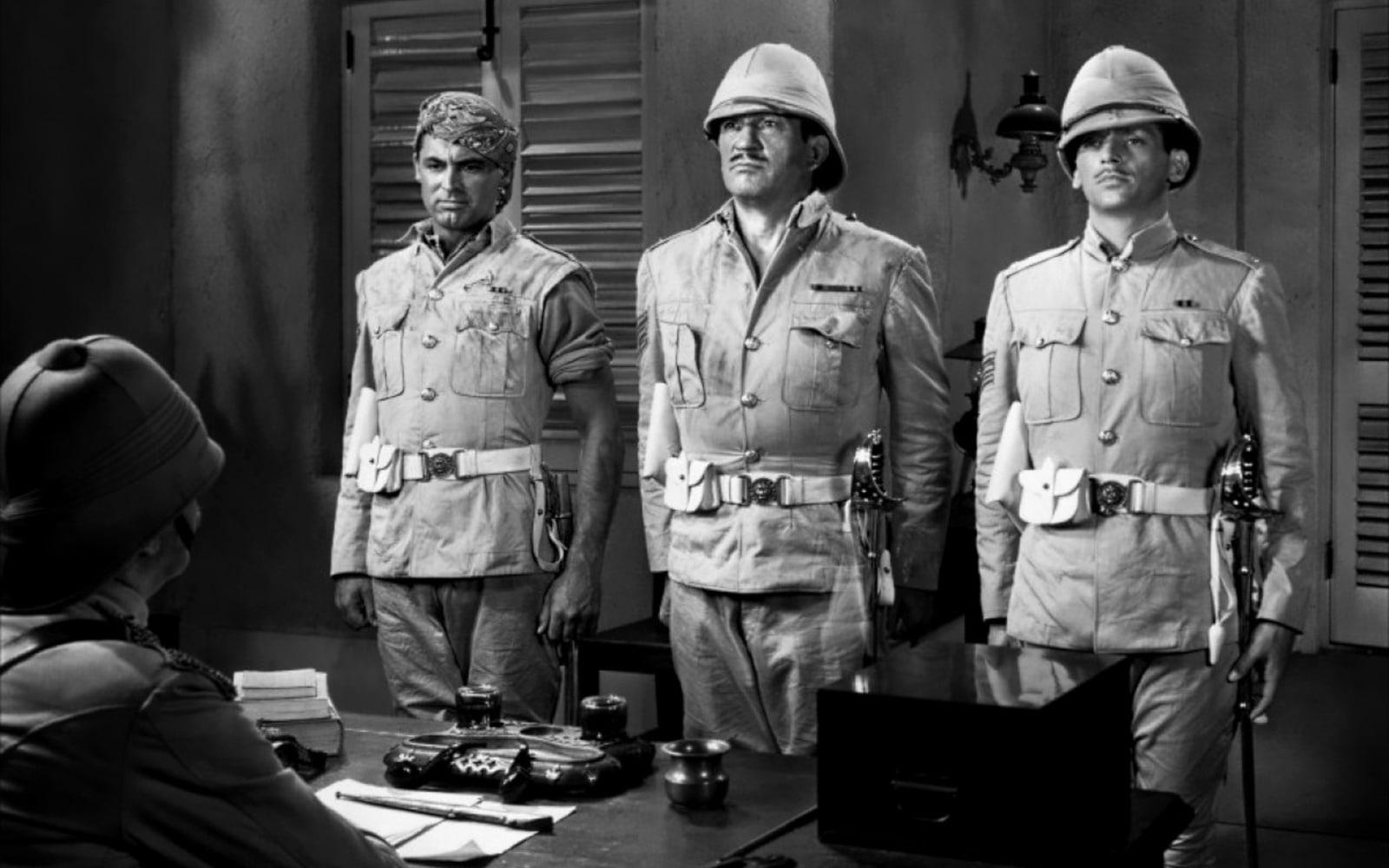Gunga Din by George Stevens (Review)

My biggest fear going into Gunga Din was that, rather than be this classic rousing action/adventure epic, it would rather be filled with embarrassing racial stereotypes, the sort that classic Hollywood is not entirely innocent of. The reality is a film that does contain certain “embarrassing” moments and lines of dialog that might offend modern sensibilities (or at least rub people the wrong way), but on the whole does manage to be a, well, classic rousing action/adventure epic at its heart.
Inspired by the classic Kipling piece, Gunga Din is set in India at the height of British imperialism. A wave of attacks on the country’s telegraph lines have recently begun, throwing the military into a panic, since the telegraph is a lifeline. To deal with this threat, the commanders send off a rather ragtag bunch of officers, either because they’re a nuisance and they need to get out of the way or because they’re not afraid to get their hands dirty.
The saboteurs, who turn out to actually be a Thuggee death cult that worships Kali, make quick work of the officers’ troop, sending them back in disgrace. A larger campaign is mounted, but a snag comes up — one of the officers is due to be discharged in several days, after which he’ll get married and go into the tea business. Because of the inherent danger, he is excused, much to the chagrin of his buddies, who hatch a scheme to get him back out in the field where they need him.
To be honest, I’m not quite sure why this ended up in my NetFlix queue, but I assume it was a recommendation that I decided to go along with because it looked like fun. I didn’t have any expectations, so I can’t say I was let down by the film, but I did find it, well, old-fashioned. Far too much time is spent on the hijinks of the three officers, played by Victor McLaglen, Douglas Fairbanks Jr., and Cary Grant (whose accent seems to change with every scene), such that the titular character, an Indian bugler who wants more than anything to prove himself a soldier, easily becomes overshadowed.
In one scene, Cary Grant’s character proclaims that he won’t kowtow to the Thugs after he’s been captured, because he doesn’t bow to heathens. Ironically, nothing that Grant or his cohorts do really separate them from the so-called “heathens.” Indeed, they’re even worse — carousing, abandoning their posts, looking down on the Indians. At least the Thugs have conviction on their side. And worse, the trio’s carousing loses its humorous appeal after awhile, and quickly becomes hamfisted and overwrought. Even Grant has little of the charisma he displayed in Only Angels Have Wings (which came out the same year) or His Girl Friday.
I can see how the film would be epic at the time. But in this day and age, where epics are tossed off every six months or so, it’s hard to look past the film’s dated-ness and timely flaws. Not an unenjoyable film, but if you’re looking for a “classic” epic, you may wish to look elsewhere — and if you’re looking for an honest, unromantic view of British imperialism, you’ll definitely want to look elsewhere.
